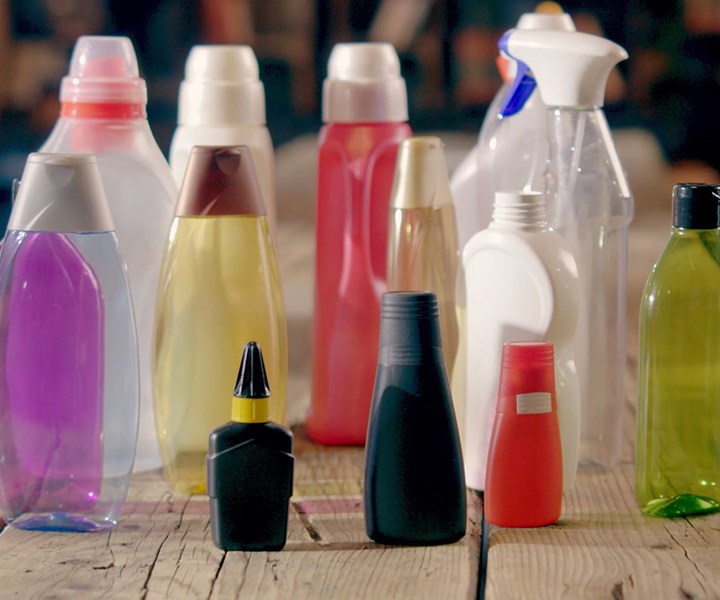Henkel to Reduce Fossil-Based Virgin Plastic by 50%
In stepping up its sustainability commitment, Henkel has announced further ambitious packaging targets for 2025.
Germany’s Henkel (U.S. office in Stamford, Conn.), a global market leader in the adhesives sector and known for its strong brands in laundry & home care and beauty care, is stepping up its sustainability commitment and has set further ambitious packaging targets for 2025.
As a global consumer goods company, Henkel wants to foster a circular economy – meaning that packaging materials remain in economic cycles as long as possible and do not end up in the environment. Henkel has already made many advances in the field of sustainable packaging. For example, the company further increased the share of recycled plastic in its packaging and a number of Henkel’s packaging already consists of 100% recycled material. With its new ambitious packaging strategy, Henkel strives to use material from sustainable sources and develop smart designs to close the loop.
Says Sylvie Nicol, executive v.p. of Henkel’s human resources and chair of the company’s sustainability council. “Packaging and plastic have captured the attention of the public, governments, and businesses around the world more than ever – plastic waste ending in the environment is one of the greatest global challenges. The search for solutions is well underway, and our packaging experts are working intensively to deliver on our ambitious targets.” Nicol also noted that to drive further progress, the company is closely working with its partners along the entire value chain.” As recently reported, this includes the use of renewable PP being produced by Borealis using the Nexbtl renewable hydrocarbon technology of Findland’s Neste.

The new packaging targets for 2025 are:
▪ 100% recyclable or reusable: By 2025, all packaging material will be recyclable or reusable; today the company is already at 85%. The main aim is to overcome the recycling hurdles specific to each packaging category--for example, by introducing solutions for multi-layer flexible or black packaging. Henkel is working on these challenges in cross-industry partnerships such as CEFLEX, a consortium of more than 130 companies and organizations aiming to enable flexible packaging to be recycled.
▪ 50% less fossil plastic: Henkel is aiming to reduce the amount of virgin plastic from fossil sources in the consumer goods businesses beauty care and laundry & home care by 50%--by reducing the volume of packaging, through increasing the proportion of recycled material in its consumer goods packaging to more than 30% globally and by using biobased plastics.
▪ Zero waste: The company is supporting waste collection and recycling initiatives and invests in innovative solutions and technologies to promote closed-loop recycling. Examples are Henkel’s long-term partnership with social enterprise Plastic Bank or the company’s membership in the global Alliance to End Plastic Waste. Additionally, Henkel aims to support its consumers in responsible usage and disposal of its products. Each year, the company wants to reach more than 2 billion consumer contacts by providing targeted information about recycling and correct waste disposal, for example, through dedicated icons on the packaging.
Related Content
-
Automotive Awards Highlight ‘Firsts,’ Emerging Technologies
Annual SPE event recognizes sustainability as a major theme.
-
Thermoforming PCR: An Equipment Supplier’s Pointers
Thermoforming PCR is not radically different from forming virgin, but variation in recycled materials can require extra care to get a consistent end result. Start by examining every aspect of the process from the sheet (and extrusion process if run inline) to the final trim.
-
Evolving Opportunities for Ambitious Plastics Recycler
St. Joseph Plastics grew from a simple grinding operation and now pursues growing markets in recycled PP, food-grade recycled materials, and customized post-industrial and post-consumer compounds.
















